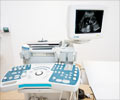
‘Non-U.S. residents are increasingly going to the United States for specialized assisted reproductive therapy (ART) treatments that may not be available in their home countries.’
Tweet it Now
During that time frame, the number of non-residents receiving ART treatment in the United States more than doubled, growing from 1.2 percent of the total number of cases to 2.8 percent (nearly 5,400 in 2013)."While the number of cycles is relatively small, it is definitely growing," said Georgia Tech's Aaron Levine, the associate professor in the School of Public Policy who led the study. "Non-U.S. residents are increasingly coming here for specialized ART treatments that may not be available in their home countries. And they're using these techniques at greater rates than Americans."
Non-resident cycles had a higher use of oocyte (or egg) donation (42.6 percent vs. 10.6 percent of American cycles). They were also nearly eight times more likely (12.4 percent vs. 1.6 percent) to use gestational carriers/surrogates, and almost four times more likely to receive preimplantation genetic diagnosis or screening (19.1 percent vs. 5.3 percent).
American and non-American patients had similar embryo transfer and multiple birth rates.
Patients from 147 countries received care in the U.S., with the largest number coming from Canada. Nearly 50 percent of Canadian patients used donated eggs, likely reflecting Canadian legal restrictions on payment for egg donors. Patients from the United Kingdom and Japan, the third and fourth most common source countries, also made frequent use of donated eggs - more than 50 percent of U.K. patients and more than 90 percent of Japanese patients used this technique. The second largest number of patients came from Mexico, with these patients using specialized techniques at about the same rate as U.S. patients.
Advertisement
"Our results highlight real challenges for patients to access this important medical care," said Levine. "Understanding these challenges is critical to improving access to ART today and to helping ensure patients who travel across borders to receive ART treatment receive high-quality care."
Advertisement
Source-Eurekalert











